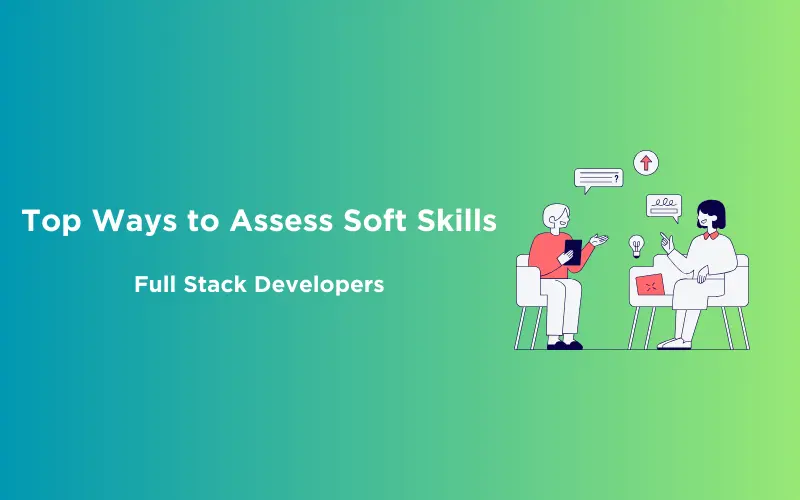
Top Ways to Assess Soft Skills in Full Stack Developers in 2025
Apr 23, 2025 6 Min Read 4068 Views
(Last Updated)
When you’re hiring a full-stack developer, what are the most important things you look for? Most probably excellent technical and development skills. Sure, they might be great at their work, but would they be a great employee or someone who fits well within your organization?
This issue is prevalent across the tech industry. We stay focused on the technical and hard skills of our potential developers, but we often forget about the necessary soft skills in full-stack developer that one would need to function properly in an organization, within a team, and across departments.
So, what are these soft skills in full-stack developers that you need to factor in during the selection process? More importantly, how would you evaluate these soft skills in full-stack developers? In this blog, we’ll help you navigate the issue of assessing soft skills like a pro so that you can hire a full-stack developer who is both an excellent developer and the right fit for your company!
Table of contents
- How to Evaluate the Top Soft Skills in Full Stack Developers
- Communication
- Flexibility
- Teamwork
- Patience
- Critical Thinking
- Presentation Skills
- Time Management
- Creativity
- Accountability
- Problem-Solving
- Conclusion
- FAQs
- How do you evaluate soft skills in the hiring process?
- What are soft skills in recruitment?
- What are the soft skills required for a full-stack developer?
- Why should soft skills be evaluated in a tech hiring process?
- How to analyze soft skills with more efficiency and accuracy?
How to Evaluate the Top Soft Skills in Full Stack Developers
Evaluating soft skills can be a little tricky in comparison to assessing hard skills. So, the following are the top soft skills you should look for in a full stack developer, why and where would they need those soft skills and a couple of questions you can ask to assess soft skills in full stack developers with ease:
1. Communication
Communication skills refer to the ability to effectively convey ideas, listen actively, and collaborate with team members and clients. It is one of the most crucial soft skills for full-stack developers, as it allows active collaboration among all the stakeholders and team members. Active listening is an even more important aspect of full-stack development.
Day-to-Day Use Cases:
- Explaining technical complexities to non-technical stakeholders.
- Collaborating with team members on project requirements.
- Conducting code reviews and providing constructive feedback.
Why It’s Important: Effective communication ensures that everyone is on the same page, reducing misunderstandings and increasing the efficiency of the project.
How to Assess Communication Skills in Full Stack Developers:
Methodology: During the interview, ask the candidate to explain a complex technical concept in layman’s terms.
Questions to Ask:
- Can you explain how an API works to someone with no technical background?
- How would you handle a disagreement in your team about the approach to a project?
2. Flexibility
Flexibility is another must-have soft skill in developers, as it allows them to easily adapt to new technologies, methodologies, and project requirements.
Day-to-Day Use Cases:
- Switching between front-end and back-end development tasks.
- Learning a new programming language or framework as a project needs change.
- Adapting to new project management methodologies like Agile or Scrum.
Why It’s Important: The tech landscape is ever-changing. Flexibility allows developers to stay relevant and contribute effectively to diverse projects.
How to Assess Flexibility in Full Stack Developers:
Methodology: Present a scenario where the candidate has to quickly adapt to a change in project requirements.
Questions to Ask:
- Can you describe a situation where you had to learn new technology quickly?
- How do you handle changes in project requirements?
Before diving into the next part, ensure you’re solid on full-stack development essentials like front-end frameworks, back-end technologies, and database management. If you are looking for a detailed Full Stack Development career program, you can join GUVI’s Full Stack Development Course with placement assistance. You will be able to master the MERN stack (MongoDB, Express.js, React, Node.js) and build real-life projects.
Additionally, if you would like to explore JavaScript through a self-paced course, try GUVI’s JavaScript certification course.
3. Teamwork
While a lot of people feel development is an individual task, for full-stack developers, it’s different. Teamwork is an extremely important soft skill in full-stack developers, which involves collaborating effectively with colleagues, respecting their ideas, and contributing to a positive work environment.
Day-to-Day Use Cases:
- Pair programming with a colleague.
- Resolving merge conflicts in a collaborative codebase.
- Participating in team meetings to discuss project progress.
Why It’s Important: Teamwork fosters a positive work environment, makes problem-solving easier, and leads to a more successful project outcome.
How to Assess Teamwork in Full Stack Developers:
Methodology: Use group exercises or role-playing scenarios during the interview to observe how well the candidate collaborates.
Questions to Ask:
- Can you describe a successful team project you were a part of?
- How do you handle conflicts within your team?
Also read: The ultimate guide to smooth hiring of full stack developers
4. Patience
Patience is a virtue, and it sits perfectly well for full-stack developers. Patience as a soft skill is the ability to remain calm and composed, especially when faced with challenges or delays. Many times, the code might not run as expected, or minor errors could lead to bigger effects. In such scenarios, it’s essential that the full-stack developer knows how to deal with it patiently.
Day-to-Day Use Cases:
- Debugging complex issues in the code.
- Explaining technical details to clients or junior team members.
- Waiting for approval or feedback from stakeholders.
Why It’s Important: Patience helps in maintaining a balanced emotional state, which is crucial for problem-solving and effective communication.
How to Assess Patience in Full Stack Developers:
Methodology: During the technical assessment, introduce a deliberately tricky or ambiguous problem and observe how the candidate handles it.
Questions to Ask:
- Can you describe a situation where you had to be exceptionally patient?
- How do you manage stress during tight deadlines?
5. Critical Thinking
Coding and development require good levels of critical thinking. Critical thinking is the ability to analyze situations or problems, consider alternative solutions, and make informed decisions. For full-stack development, it’s almost all of their job. This makes critical thinking a key soft skill that developers must possess.
Day-to-Day Use Cases:
- Evaluating the pros and cons of different architectures or technologies.
- Identifying potential bottlenecks or issues in code.
- Assessing the impact of new features or changes on the existing system.
Why It’s Important: Critical thinking enables developers to make rational decisions that benefit the project in the long term.
How to Assess Critical Thinking in Full Stack Developers:
Methodology: Present a complex problem and ask the candidate to evaluate multiple solutions, discussing the pros and cons of each.
Questions to Ask:
- Can you describe a challenging problem you solved by thinking critically?
- How do you approach making decisions when multiple solutions are viable?
6. Presentation Skills
Full-stack developers must have good presentation skills, which involve effectively conveying information and ideas, both verbally and visually.
Day-to-Day Use Cases:
- Presenting a new feature proposal to stakeholders.
- Explaining the architecture of the system during team meetings.
- Showcasing the progress of the project to clients.
Why It’s Important: Good presentation skills ensure that ideas and solutions are understood and accepted by stakeholders, facilitating smoother project execution.
How to Assess Presentation Skills in Full Stack Developers:
Ask the candidate to prepare a short presentation on a technical topic of their choice.
Questions to Ask:
- How do you prepare for a technical presentation?
- Can you describe a time when your presentation skills made a difference in a project?
7. Time Management
Time management is the ability to prioritize tasks effectively to meet deadlines without compromising quality. It is a paramount soft skill for any professional, and full-stack developers are no exception to this requirement.
Day-to-Day Use Cases:
- Juggling between multiple tasks such as coding, testing, and documentation.
- Estimating the time required for different phases of a project.
- Prioritizing urgent bug fixes over feature development.
Why It’s Important: Good time management ensures that projects are delivered on time and that work is distributed evenly, reducing stress and increasing productivity.
How to Assess Time Management Skills in Full Stack Developers:
Provide a list of tasks with varying levels of urgency and importance, and ask the candidate how they would prioritize them.
Questions to Ask:
- How do you manage your time when working on a complex project with tight deadlines?
- Can you describe a situation where your time management skills were put to the test?
8. Creativity
The next essential soft skill needed by a full-stack developer is creativity. Creativity involves thinking outside the box to come up with innovative solutions or features. Creativity is a key aspect of a developer’s role as it allows them to take their work a notch further.
Day-to-Day Use Cases:
- Designing a user-friendly interface.
- Finding novel solutions to complex problems.
- Suggesting new features or improvements.
Why It’s Important: Creativity leads to innovation, making products more user-friendly, efficient, and marketable.
How to Assess Creativity in Full Stack Developers:
Ask the candidate to solve a problem that doesn’t have a straightforward solution, encouraging them to think creatively.
Questions to Ask:
- Can you describe a situation where you had to think creatively to solve a problem?
- How do you approach challenges that don’t have well-defined solutions?
Also Read: Use these strategies to attract just the right tech talent for you
9. Accountability
Every profession and professional needs accountability. Accountability is a soft skill that allows full-stack developers to take responsibility for their work, actions, and consequences, both good and bad. It’s a huge part of good work ethics and, thus, one of the most sought after soft skills in a developer.
Day-to-Day Use Cases:
- Owning up to mistakes in code and fixing them.
- Taking the lead on projects or tasks.
- Ensuring that deadlines and quality standards are met.
Why It’s Important: Accountability builds trust within the team and with stakeholders, and it ensures that tasks are completed responsibly.
How to Assess Accountability in Full Stack Developers:
Discuss past projects where the candidate had significant responsibilities and ask how they handled them.
Questions to Ask:
- Can you describe a situation where you had to take responsibility for a mistake?
- How do you ensure you meet your responsibilities when leading a project?
10. Problem-Solving
If somebody asks you, what a full-stack developer does, then most of their roles and responsibilities will boil down to one thing: problem-solving. Problem-solving is the ability to identify issues and implement effective solutions. Coding is all about problem-solving. This makes it an indispensable soft skill to look for in your potential full-stack developer
Day-to-Day Use Cases:
- Debugging errors in the code.
- Optimizing performance issues.
- Implementing features based on user feedback.
Why It’s Important: Problem-solving is at the core of software development, affecting everything from code quality to the user experience.
How to Assess Problem-Solving in Full Stack Developers:
Present a real-world problem related to full-stack development and ask the candidate to solve it.
Questions to Ask:
- Describe a challenging problem you’ve solved in the past.
- How do you approach troubleshooting issues in a live application?
Conclusion
Now that we have seen how crucial soft skills are for full-stack developers, we must start directing more efforts toward evaluating them well. With the above tips to analyze the soft skills of a full-stack developer, organizations like yours get fine developers who know how to handle difficult situations, work in cross-functional teams, and understand that working isn’t just about finishing a given task but also contributing to the overall growth of the organization.
You would want to ask the right questions, pick up the right points from the answers, and pick the right full-stack developer to ensure good synergistic growth. To expedite the process and save your time, cost, and efforts, you must take advantage of smart hiring solutions like the HYRE platform, a 360-degree, AI-powered assessment tool by GUVI for Corporates, that allows seamless hiring, behavioral evaluation through interviews and customized questionnaires/tests and much more, all at once!
For more hiring information, tips, and guidance, keep checking out this space!
Kickstart your Full Stack Development journey by enrolling in GUVI’s certified Full Stack Development Course with placement assistance where you will master the MERN stack (MongoDB, Express.js, React, Node.js) and build interesting real-life projects. This program is crafted by our team of experts to help you upskill and assist you in placements.
Alternatively, if you want to explore JavaScript through a self-paced course, try GUVI’s JavaScript course.
FAQs
Soft skills are evaluated through a combination of behavioral interviews, situational questions, and role-playing exercises. Observing candidates in group activities can also provide insights into their interpersonal skills.
In recruitment, soft skills refer to non-technical attributes like communication, teamwork, and problem-solving. These skills are crucial for workplace success and are assessed alongside technical skills during the hiring process.
Key soft skills for a full-stack developer include communication, flexibility, teamwork, patience, critical thinking, presentation skills, time management, creativity, accountability, and problem-solving.
Evaluating soft skills is essential for ensuring a cultural fit and effective teamwork. These skills also impact problem-solving abilities and client interactions, making them crucial for project success.
To analyze soft skills efficiently, use standardized assessments, real-world scenarios, and structured interviews. Consistent evaluation criteria and multiple assessors can also improve accuracy.

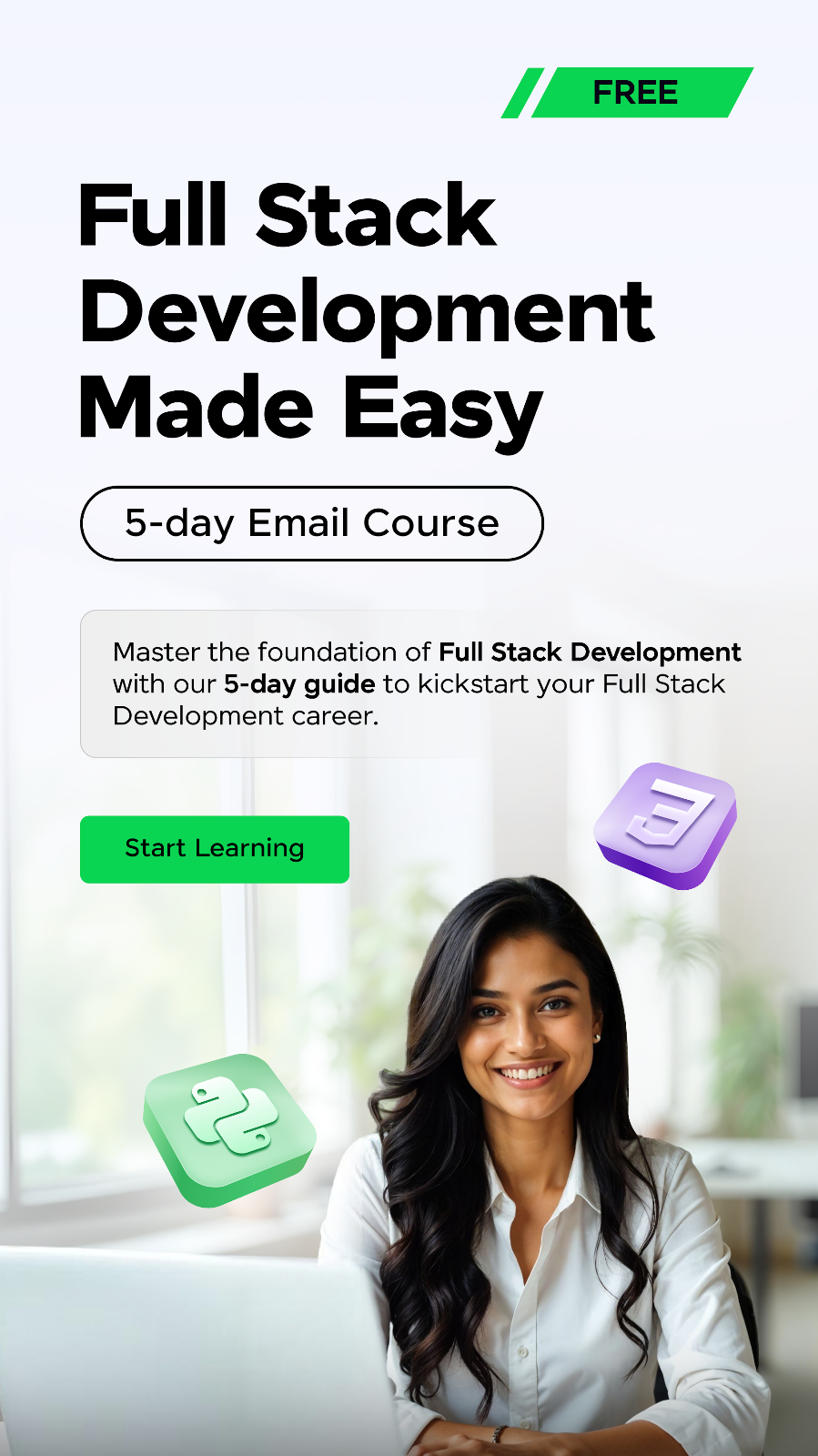




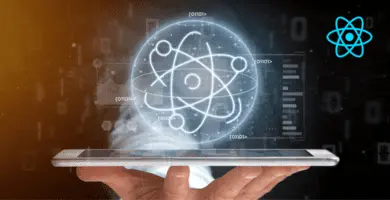



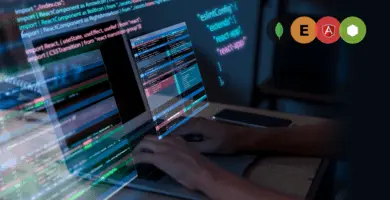
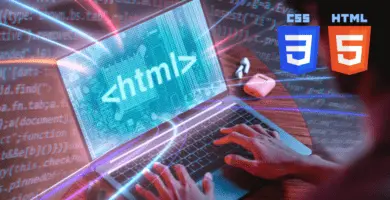








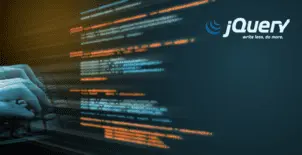

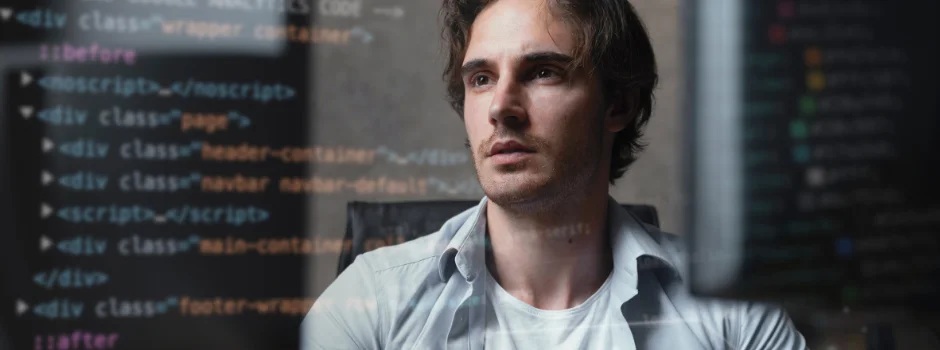
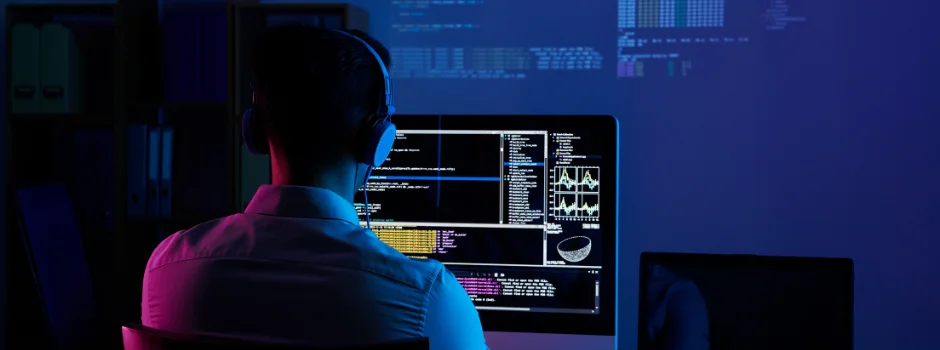


![Top Frontend Developer Skills: A Beginner's Guide [2025] 6 frontend developer skills](https://www.guvi.in/blog/wp-content/uploads/2023/03/Top-Frontend-Developer-Skills-A-Beginners-Guide.png)

![Top 10 React Native Project Ideas [With Source Code] 8 React Native Project Ideas](https://www.guvi.in/blog/wp-content/uploads/2024/10/React_Project_Ideas.png)

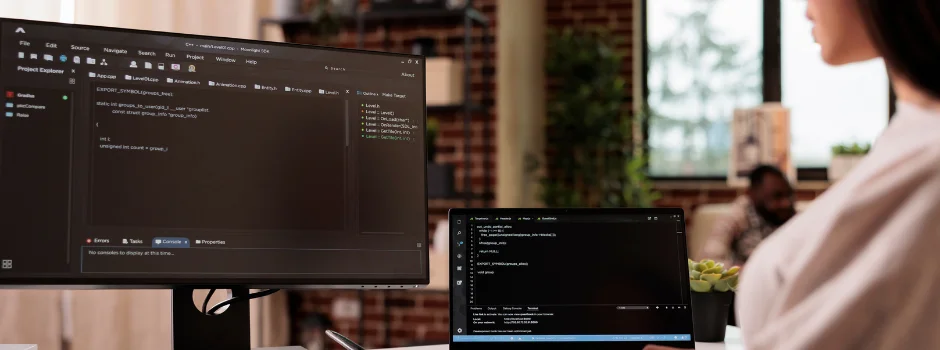

Did you enjoy this article?